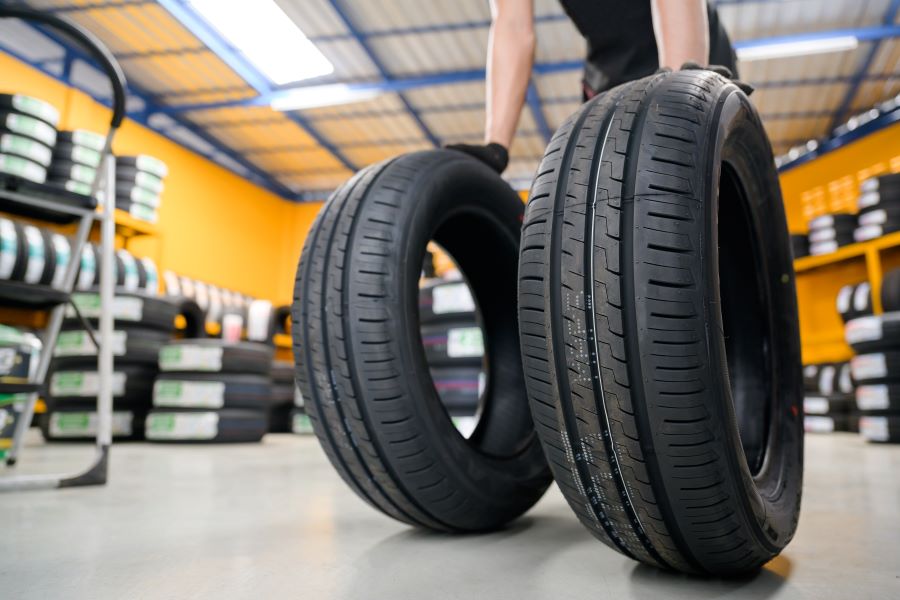Finding the Right Tires at the Right Price: A Complete Guide
Tires are one of the most important safety components on your vehicle, yet many drivers postpone replacement due to cost concerns. Finding quality tires at reasonable prices requires understanding what you need and where to look. The marketplace for tires spans from specialized tire centers to big box retailers, online marketplaces, and local independent shops. Each option offers different advantages in terms of selection, service, and pricing. This guide will help you navigate the tire-buying process to secure both safety and value.

How to Compare Tire Prices Across Multiple Retailers
Comparing tire prices effectively requires more than just looking at the base price. Many retailers structure their pricing differently, with some advertising low tire costs but adding installation fees, disposal charges, and other services that significantly increase the final bill. To make meaningful comparisons:
Start by knowing exactly what tire size and specifications you need for your vehicle. This information is typically found in your owner’s manual or on a sticker inside the driver’s door jamb. Once you know this, use price comparison websites like TireRack.com, SimpleTire, or Tire Buyer that allow you to search across multiple vendors simultaneously. These platforms often include customer reviews and performance ratings to help inform your decision.
Remember that shipping costs can significantly impact online prices, while brick-and-mortar stores may offer price matching or seasonal promotions that aren’t immediately apparent. Additionally, be sure to compare complete packages including mounting, balancing, and warranty options, not just the tire price itself.
Strategies for Finding the Best Tire Deals
Finding genuine value in tire purchases requires timing and research. Tire prices often follow seasonal patterns, with retailers offering discounts on winter tires in fall and all-season tires in spring. Major tire manufacturers typically run rebate promotions quarterly, which can save consumers $50-$100 on a full set. These promotions are usually advertised on manufacturer websites and through their authorized retailers.
Membership clubs like Costco and Sam’s Club frequently offer tire discounts to members, including installation packages and lifetime maintenance services like rotation and balancing. These services can add considerable value over the tire’s lifespan. Additionally, many larger retailers like Discount Tire, Tire Kingdom, and Walmart maintain price-matching policies against competitors’ advertised prices.
Consider also the long-term value of your purchase. Premium tires may cost more upfront but could deliver better fuel economy and longer tread life, reducing your cost-per-mile over time. Many manufacturers offer mileage warranties of 50,000-80,000 miles on premium models, providing additional value protection on your investment.
Why You Shouldn’t Overlook Local Tire Shops
While large chains and online retailers dominate much of the market, local independent tire shops offer unique advantages worth considering. These businesses often have lower overhead costs and can be more flexible with pricing, especially for installation and service packages. Local shops frequently build their reputation on personalized customer service and developing long-term relationships with customers in the community.
Independent shops may also have access to a wider variety of tire brands and models than chain retailers, which often have exclusive contracts with specific manufacturers. This access can include specialty tires that might be hard to find elsewhere. Many local shops also offer additional mechanical services, meaning they can identify and address related issues like alignment problems that might affect tire performance and longevity.
Building a relationship with a local tire shop can pay dividends beyond your initial purchase, as these businesses often prioritize repeat customers with preferential appointment scheduling, special promotions, and attentive service. They may also be more willing to stand behind their work if issues arise after installation.
Understanding Tire Pricing Factors
Tire pricing varies widely based on several key factors. Size significantly impacts cost, with specialized sizes for luxury vehicles or SUVs commanding premium prices. Tire construction type also matters—traditional all-season radials typically cost less than specialized performance, winter, or all-terrain options. Brand reputation plays a major role too, with premium manufacturers like Michelin, Continental, and Bridgestone generally charging more than mid-tier brands like General, Cooper, or Kumho.
Performance category greatly affects pricing as well. Economy tires might cost $50-75 per tire, while mid-range options typically fall between $100-150 each. Premium performance tires can easily exceed $200-300 per tire. The technology incorporated into tire design—including special compounds for wet traction, unique tread patterns, or reinforced sidewalls—all contribute to price differences.
Comparison of Typical Tire Retailers and Pricing
| Retailer Type | Average Price Range (per tire) | Installation Costs | Additional Benefits |
|---|---|---|---|
| Big Box Stores (Walmart, Costco) | $60-$150 | $15-25 per tire | Free rotation, basic warranty |
| Dedicated Tire Chains (Discount Tire, Tire Kingdom) | $75-$200 | $15-30 per tire | Price matching, more comprehensive warranties |
| Online Retailers (TireRack, SimpleTire) | $50-$250 | Varies by installation partner | Wider selection, detailed specifications |
| Local Independent Shops | $70-$180 | $20-40 per tire | Personalized service, flexibility in negotiations |
| Car Dealerships | $100-$300 | $25-50 per tire | OEM specifications, complete service records |
Prices, rates, or cost estimates mentioned in this article are based on the latest available information but may change over time. Independent research is advised before making financial decisions.
Making Your Final Tire Purchase Decision
After comparing prices and options, consider the total cost of ownership before making your final decision. Factor in the projected lifespan of different tire models and any included services like free rotations or road hazard warranties. Tires with longer tread life warranties may justify a higher initial investment by reducing replacement frequency.
Pay attention to installation quality as well. Proper mounting, balancing, and in some cases, alignment can significantly extend tire life and performance. A slightly higher installation cost at a reputable service center might save money in the long run through better tire performance and longevity.
Finally, keep documentation of your purchase, including warranty information and maintenance requirements. Many tire warranties require regular rotation and maintenance to remain valid. Following the manufacturer’s recommended maintenance schedule not only protects your warranty but also ensures you get the maximum value from your tire investment through optimal performance and longevity.




